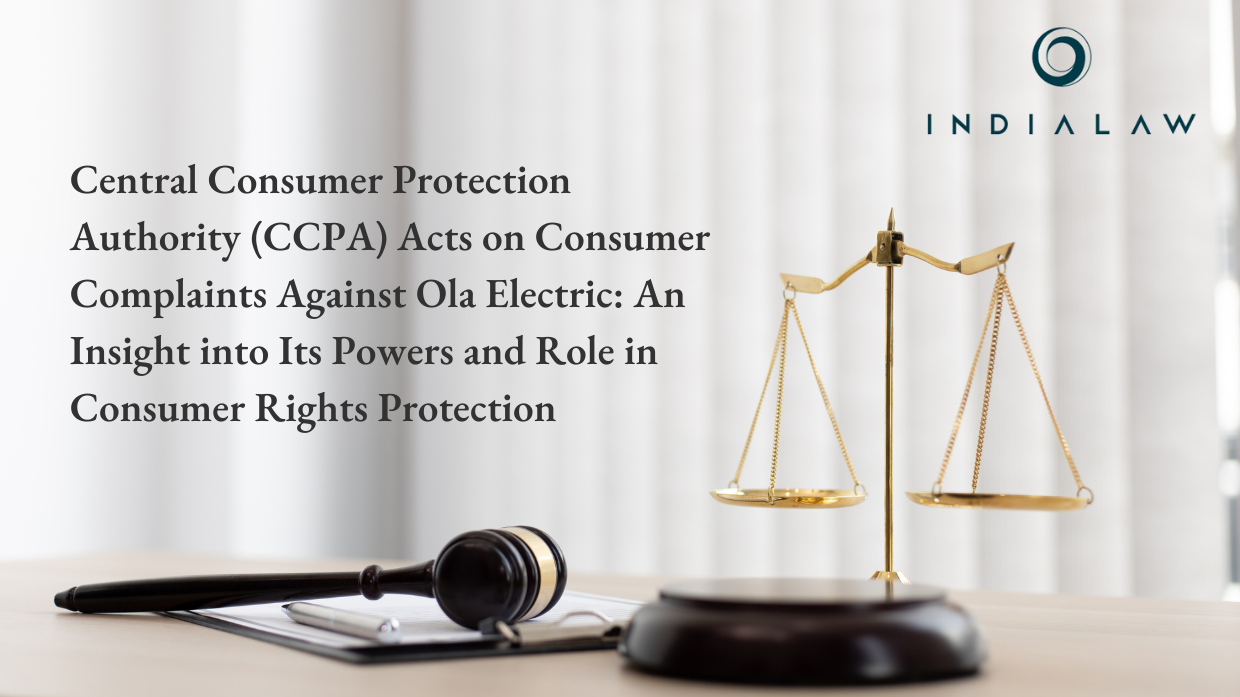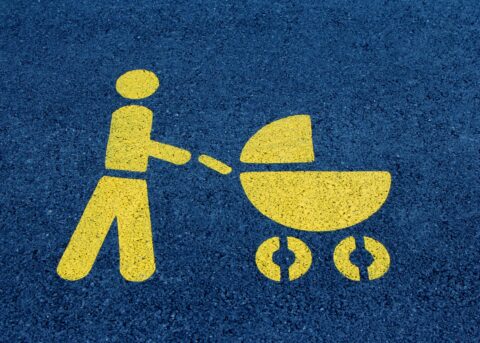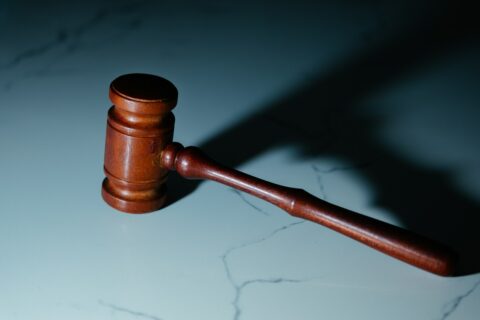Central Consumer Protection Authority (CCPA) Acts on Consumer Complaints Against Ola Electric: An Insight into Its Powers and Role in Consumer Rights Protection

Recently, the Central Consumer Protection Authority (CCPA) issued a notice to Ola Electric following a surge in consumer complaints filed through the National Consumer Helpline. These complaints related to after-sales service delays, lack of transparency in refunds, and misleading advertisements. The notice to Ola Electric has highlighted the CCPA’s important role in safeguarding consumer rights and enforcing accountability within India’s market landscape.
Established under the Consumer Protection Act, 2019, the CCPA is the principal body responsible for upholding consumer rights, curbing unfair trade practices, and managing complaints about false or misleading advertisements. Here’s a detailed look at the CCPA’s structure, powers, and how it functions to protect Indian consumers.
Establishment and Structure of the CCPA
The CCPA was created by the Central Government to address violations of consumer rights, unfair trade practices, and misleading advertisements that harm the interests of the public. The Authority is led by a Chief Commissioner and several other Commissioners, appointed by the government. Headquartered in the National Capital Region of Delhi, it has regional offices across India, allowing it to address consumer issues nationwide.
Filing Complaints with the CCPA
Consumers experiencing issues such as violations of consumer rights, unfair trade practices, or misleading advertisements may file complaints through multiple channels:
- In Writing or Electronically: Complaints can be submitted either in written form or electronically.
- Submitting to Local Authorities: Complaints may also be submitted to the District Collector, the Commissioner of a regional office, or directly to the CCPA.
CCPA’s Investigation Process
The CCPA conducts inquiries and investigations through its Investigation Wing, which is managed by a Director-General appointed by the Central Government. The Director-General may delegate powers to other officials as necessary. Investigations may be initiated based on complaints received, as seen in the Ola Electric case, or at the discretion of the CCPA itself. The District Collector also plays a role in investigating consumer complaints locally, providing additional oversight.
Powers and Functions of the CCPA
The CCPA has several key responsibilities, including:
- Protecting Consumer Rights: The CCPA works to promote and enforce consumer rights, preventing their violation.
- Preventing Unfair Trade Practices: It acts against unfair trade practices that could deceive or harm consumers.
- Monitoring Advertisements: The CCPA ensures that advertisements are truthful and not misleading, with a focus on protecting consumer interests.
The CCPA may initiate inquiries or investigations independently, based on complaints, or through directives from the Central Government. It can also intervene in legal proceedings related to consumer rights and unfair trade practices, and recommend international best practices for effective consumer protection.
Power to Refer Cases to Other Regulatory Bodies
If a case appears to fall within the jurisdiction of another regulatory body, the CCPA may refer the matter, along with relevant findings, to the appropriate authority. This ensures that complex consumer issues are addressed comprehensively and by the correct regulatory framework.
Power to Recall Goods
In cases where investigations reveal that goods are hazardous or violate consumer rights, the CCPA can order the recall of those goods from the market. Businesses may also be required to reimburse consumers for the recalled products or to stop practices that pose a risk to consumer interests. Before issuing a recall order, the CCPA provides businesses with an opportunity to respond, ensuring a fair process.
Directions Against False or Misleading Advertisements
One of the CCPA’s significant roles is to prevent false or misleading advertisements. If the CCPA determines that an advertisement is deceptive or misleading, it can:
- Order the concerned entity to discontinue or modify the advertisement.
- Impose penalties on manufacturers, advertisers, or endorsers, which may go up to 10 lakh INR for a first offense, with increased penalties for repeat offenses.
- Ban endorsers from promoting any product for up to one year, with stricter measures for repeat violations.
Search and Seizure Powers
The CCPA has extensive authority to ensure compliance, including the power of search and seizure. The Director-General or the District Collector may enter premises, search, and seize documents or articles relevant to an investigation. These items are generally returned within 20 days after necessary certification, maintaining a transparent process.
Appeals Against CCPA Orders
If an individual or business is aggrieved by an order of the CCPA, they can appeal to the National Commission within 30 days from the order’s receipt. This mechanism provides a fair process for contesting CCPA decisions and ensures checks and balances.
Conclusion
The CCPA’s notice to Ola Electric underscores its commitment to consumer protection, especially concerning service quality and advertisement transparency. With extensive powers for investigation, recall, and penalizing misleading practices, the CCPA is a cornerstone of consumer rights enforcement in India. Through its structured approach, the CCPA holds businesses accountable, ensuring that consumer welfare remains a priority in India’s fast-growing economy.
For more information or details write to contact@indialaw.in
By entering the email address you agree to our Privacy Policy.



